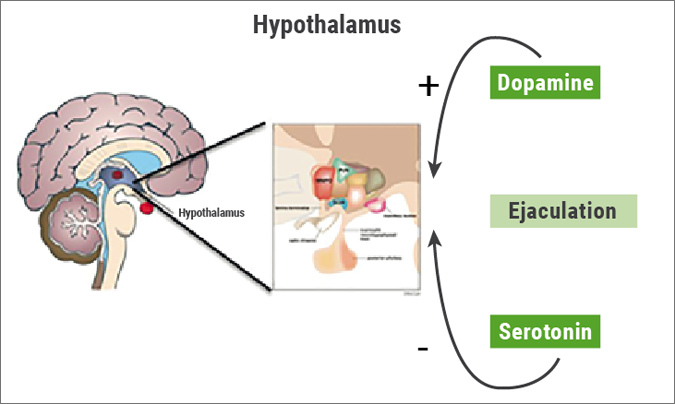Prof. Paolo Capogrosso (San Raffaele Hospital, Milan, Italy) presented their study attempting to address why men seek medical support for sexual health problems [1]. While erectile dysfunction and premature ejaculation have become less commonly reported, complaints of reduced sexual desire and Peyronie's disease are on the rise.
The researchers included 3,244 men who visited the San Raffaele Hospital Sexual Health Clinic over the last decade (2009-2019) and collected information concerning the reasons they initiated consultation. The observations boiled down to a few key trends:
- Since 2013, there has been a steady decrease in the number of men who complained of erectile dysfunction.
- At baseline in 2009, very few patients reported low sex drive or Peyronie's disease, yet since 2009, self-reporting of these 2 conditions has steadily increased.
- In 2019, 30% of men were more likely to report Peyronie's disease compared with a decade earlier.
- 32% more men reported low sexual desire in 2019 compared with 2009.
- The proportion of men reporting premature ejaculation reduced by nearly 6% in the last decade.
- The average age of patients visiting the sexual health clinic dropped from 61 in 2009 to 53 in 2019.
Although erectile dysfunction is still the main reason for attending the clinic, this number has been steadily dropping. In contrast, Peyronie's disease appears to be steadily more reported, and makes up 35% of the complaints registered in 2019. Given that stigma surrounding sexual health has been presumably decreasing steadily, some of the changes reflect a novel openness to seek help at a sexual health clinic. Similarly, successful and accessible erectile dysfunction treatments are possibly attributable to the dropping numbers of that particular complaint.
- Capogrosso P, et al. EAU20 Virtual Congress, 17-26 July 2020, Abstract 731. Session: Diagnostic novelties in male sexual dysfunction.
Posted on
Previous Article
« LUTS 2-year outcomes: aquablation versus TURP Next Article
Infertility and testis cancer risk: causal or association? »
« LUTS 2-year outcomes: aquablation versus TURP Next Article
Infertility and testis cancer risk: causal or association? »
Table of Contents: EAU 2020
Featured articles
Surgical Techniques and Safety
The new adjustable artificial sphincter victo: Surgical technique and results after a follow-up of more than one year
New urosepsis data from the SERPENS study
Stones
Intra-operative cone-beam computed tomography for detecting residual stones in percutaneous nephrolithotomy
Pressure and temperature: do high-power lasers pose a threat?
Radiation stewardship for patient and endourologist
New lithotripter data: improved stone clearance
Renal Cancer
Beyond the limits of ultrasound: Three dimensional augmented reality robot assisted partial nephrectomy (3D AR-RAPN) for complex renal masses
Imaging guided surgery with augmented reality for robotic partial nephrectomy
KEYNOTE-426: no QoL differences pembrolizumab + axitinib versus sunitinib
Debate: upfront cytoreductive nephrectomy or not?
Robotic-assisted partial nephrectomy: lower morbidity
Bladder Cancer
Reduced BCG frequency, faster NMIBC recurrence
Nadofaragene firadenovec effective in BCG-unresponsive papillary NMIBC
Understanding MIBC biology for novel treatment options
Prostate Cancer & Imaging
Transperineal laser ablation of prostate
Prostatectomy: R-LRPE better than LRPE for continence
PSMA PET-CT staging is 27% more accurate
Docetaxel + hormonal therapy: improved prostate cancer PFS
ARAMIS subgroup analysis: darolutamide benefits across PSADT groups
Large patient-driven survey reveals QoL issues after prostate cancer treatment
Targeting steroid sulphatase in resistant prostate cancer cells
Good tolerance of post-RP radiotherapy ± short-term ADT
BPH & LUTS
Minimizing post-operative stress urinary incontinence after HoLEP: Our preliminary experience and short-term results of ‘’En Bloc’’ technique with early apical release
LUTS 2-year outcomes: aquablation versus TURP
HoLEP versus PVP in prospective randomised trial
Testis Cancer & Andrology
Peyronie’s disease: surgical options
Infertility and testis cancer risk: causal or association?
32% more men complain of reduced sex drive in 2019 versus 2009
Related Articles

May 21, 2019
Male infertility/Premature ejaculation
© 2024 Medicom Medical Publishers. All rights reserved. Terms and Conditions | Privacy Policy

